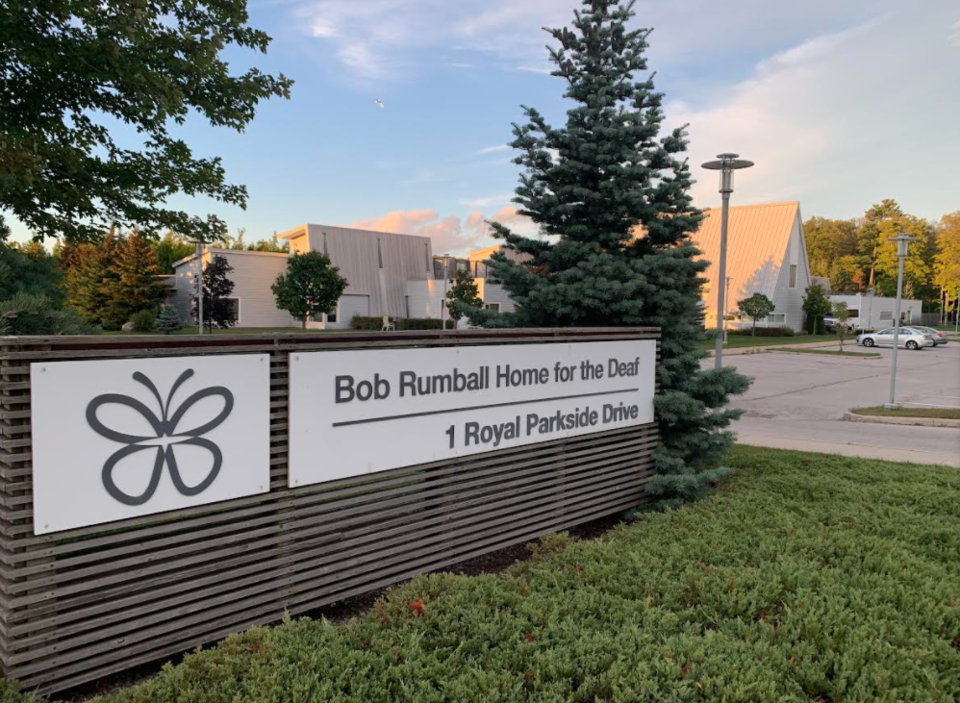Opened in 2006, the Bob Rumball Home for the Deaf in the city's south end is designed specifically for what is called a "visually oriented community," which makes it quite different from most other long-term care facilities.
Shirley Cassel, a longtime staff member at the Royal Parkside Drive location, was an integral part of establishing the 64-bedroom long-term care home set up for deaf seniors in Barrie.
Cassel worked at the Bob Rumble Centre in Toronto and assisted its reverend namesake with the advocacy work to get the Bob Rumball Home for the Deaf built.
She tells BarrieToday that the Barrie facility was meant to house deaf seniors transitioning from assisted living into long-term care.
“We have two floors in Toronto for seniors who live in a supportive housing environment, but as they got older and needed more care, there was nowhere for them to go,” she explained.
Cassel says she worked with the architects to build something that would, for instance, provide natural lighting without shadows and shades.
“I can wave somebody over the other side of the room because obviously they can't hear me," she said.
The layout is spacious with large hallways and rooms, as well as high ceilings. Basically, everybody's in a private room as the building was designed in such a way that each has its own entrance.
“We did very well during COVID and I think part of the reason is thanks to this design," Cassel added.
Speaking of the overall atmosphere, Cassel says it’s not uncommon for deaf seniors to know each other prior to moving in, particularly for those who were born deaf or lost their hearing at a young age.
“They move in here, they come together. And quite often they'll say, 'Oh, that was my classmate.'”
Cassel says deaf people want to be together because they're so thirsty for knowledge and the only way they get that knowledge is if they're sharing it together.
“They are seniors that have grown up in a world where the only way that they could have any kind of social interaction was to go to a deaf club or a deaf church," she added.
Cassel believes this close familiarity or friendship makes the Bob Rumball Home for the Deaf that much more special.
“When they get there, they never want to leave. It’s not like moving into a long-term care home and taking the time to get know other residents," she said.
Cassel explained that the home also provides services to people without hearing issues, because the deaf community is not a large community and it's scattered all over the province.
“We built small on purpose because we knew that we would never be able to fill this whole facility with just deaf people," she noted.
The building is divided into two sides, with one side dedicated to the deaf people and the other to the hearing people.
Cassel noted that the deaf and the hearing residents are brought together for events and activities, and the social life between them goes quite well.
“They try to help each other, though they can't communicate,” she said, adding the staff members, who are trained in sign language, also facilitate communication for the residents.
A vocal advocate for direct-care programs for deaf seniors, Cassel says the mission behind the project is still primarily to serve the deaf community.
“They don't have the option to go anywhere else. If they go somewhere else, they can't make their needs known and they're not really getting proper access to health care," she added.
Cassel also commented on the complexity of caring for deaf-blind people, who are also served by the Rumball facility — which is named for the former Canadian Football League defensive back-turned-pastor, who played in the 1950s and passed away in 2016.
“Can you imagine not being able to see and to hear and the only time that you have any kind of human interaction is if somebody comes up and touches you?”
There are currently 14 deaf people waiting to take up residence at the facility, Cassel says, but they are unlikely to move in soon because they are not given a crisis priority designation on her wait-list.
“My suggestion to the minister of health is for a new priority category for a deaf person in crisis, so that they would trump a hearing person in crisis,” she said. “There are about a hundred hearing people on my list that would have five or six other choices where they could go.”
Now semi-retired, Cassel is training the new administrator, who will run the daily operation of the home.
“If there are nurses or PSWs out there that know how to sign, this would be the perfect place for them.”
For more information about the Rumball organization, click here.



